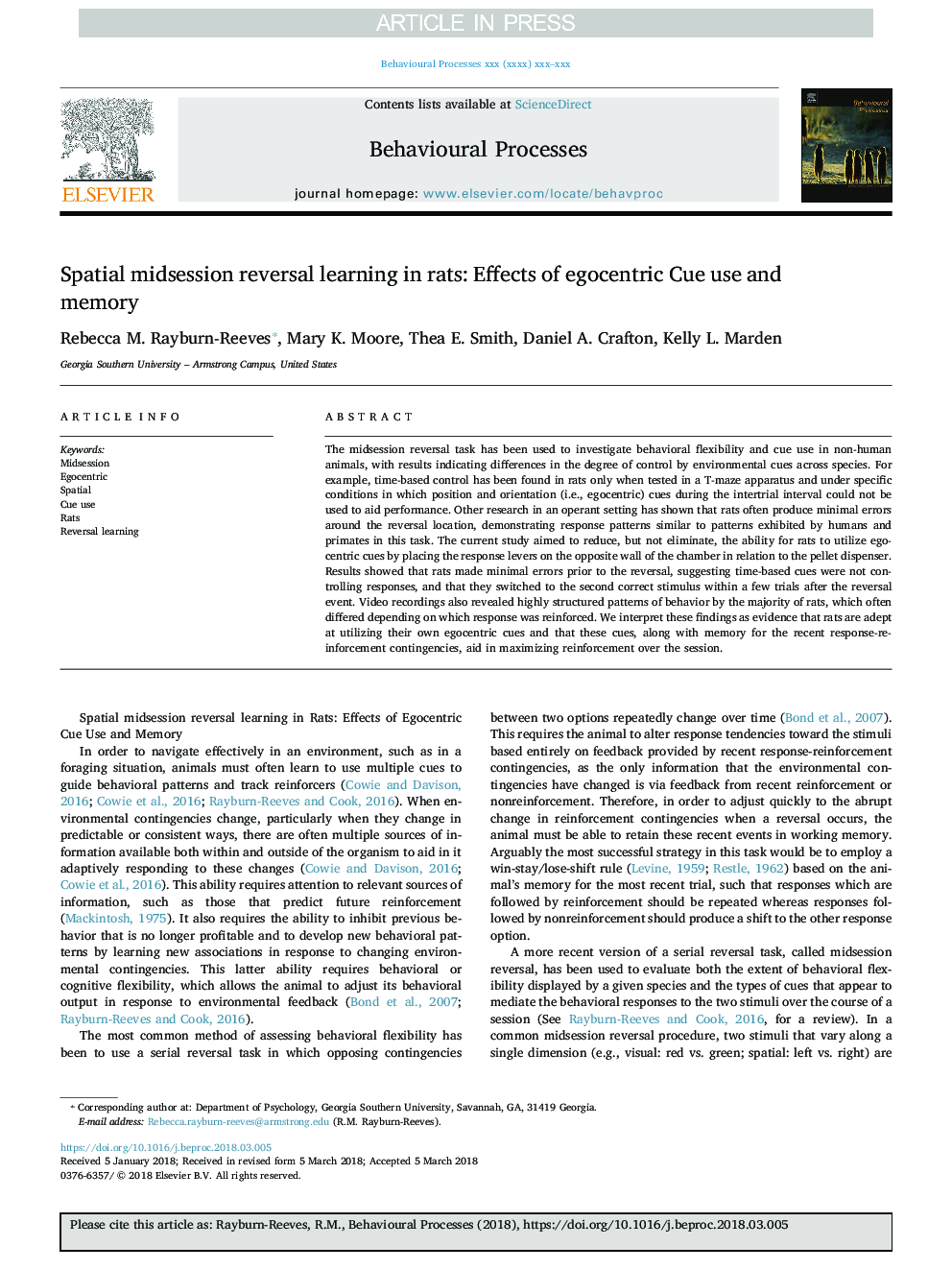| Article ID | Journal | Published Year | Pages | File Type |
|---|---|---|---|---|
| 8496943 | Behavioural Processes | 2018 | 8 Pages |
Abstract
The midsession reversal task has been used to investigate behavioral flexibility and cue use in non-human animals, with results indicating differences in the degree of control by environmental cues across species. For example, time-based control has been found in rats only when tested in a T-maze apparatus and under specific conditions in which position and orientation (i.e., egocentric) cues during the intertrial interval could not be used to aid performance. Other research in an operant setting has shown that rats often produce minimal errors around the reversal location, demonstrating response patterns similar to patterns exhibited by humans and primates in this task. The current study aimed to reduce, but not eliminate, the ability for rats to utilize egocentric cues by placing the response levers on the opposite wall of the chamber in relation to the pellet dispenser. Results showed that rats made minimal errors prior to the reversal, suggesting time-based cues were not controlling responses, and that they switched to the second correct stimulus within a few trials after the reversal event. Video recordings also revealed highly structured patterns of behavior by the majority of rats, which often differed depending on which response was reinforced. We interpret these findings as evidence that rats are adept at utilizing their own egocentric cues and that these cues, along with memory for the recent response-reinforcement contingencies, aid in maximizing reinforcement over the session.
Related Topics
Life Sciences
Agricultural and Biological Sciences
Animal Science and Zoology
Authors
Rebecca M. Rayburn-Reeves, Mary K. Moore, Thea E. Smith, Daniel A. Crafton, Kelly L. Marden,
